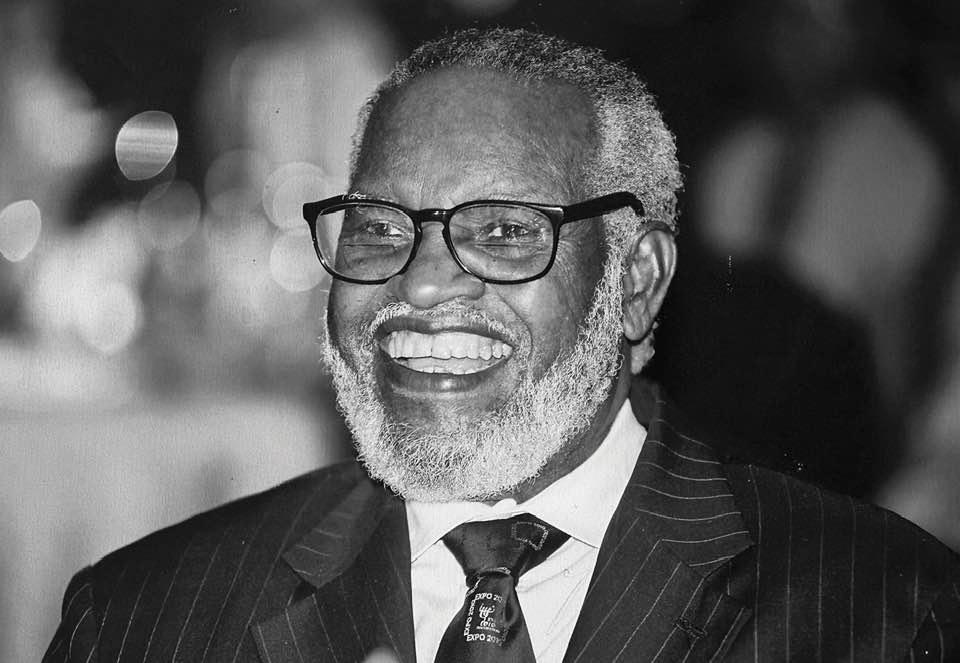While in New York, he petitioned the United Nations several times and for the next three decades he and other top SWAPO leaders campaigned tirelessly for Namibia’s independence. His approach was pragmatic: accepting weapons and military support for SWAPO’s military wing from Eastern Bloc countries and other allies while receiving financial, humanitarian and developmental assistance from Scandinavian and other European countries, churches, anti-apartheid movements and humanitarian groups.
The Organisation of African Unity (OAU) recognised SWAPO as the sole representative of the people of Namibia in 1973. Three years later, the United Nations gave SWAPO observer status, and the organisation was granted full membership in the Non-Aligned Movement (NAM) in 1978.
After 29 years in exile, Nujoma returned to Namibia on 14 September 1989 – just two months before the United Nations supervised the elections on Namibia’s independence. SWAPO won 57% of the vote and Sam Nujoma’s lifelong ambition of an independent Namibia was realised when he was sworn in as Namibia’s first president on 21 March 1990.
Many Namibians felt uncertain about their future under a SWAPO government. From a liberation fighter, known for his revolutionary rhetoric, Nujoma became a respected statesman. Instead of retribution, SWAPO’s motto, “One Namibian, One Nation” was transformed into a policy of national reconciliation, which laid the foundation for a stable and flourishing democracy.
I was fortunate to interview Nujoma at State House Swakopmund in December 1994 on the eve of the announcement of the 1994 Presidential and National Assembly elections. He was confident of winning the election with a large majority and said he looked forward to continue developing Namibia.
Nujoma received 76.3% of the vote, while SWAPO won 53 seats in the 72-seat National Assembly, giving it a two-thirds majority. Many Namibians feared that SWAPO would change the Constitution to enable the government to expropriate land without compensation, but their fears were unfounded.
During his second and third terms, Nujoma continued to lead Namibia with vision. Known as a hard worker, he set an example when he took time off to work on the construction of the railway line from Tsumeb to Oshikango.
Nujoma was single-minded, ruled with an iron fist and did not tolerate those who he regarded as disloyal. As Commander- in-Chief of the People’s Liberation Army of Namibia (PLAN), he famously had the Zambian Army called in to quell unrest among PLAN recruits in western Zambia in 1975.
During his three terms as president, Nujoma made several controversial ministerial decisions. In 1993, he demoted Trade and Industry Minister Ben Amathila to Minister of Information and Broadcasting (a decision that nearly led to Amathila’s resignation) and went on to fire him in 2002. In the same year, Nujoma demoted Namibia’s first prime minister, Hage Geingob, to Minister of Regional, Local Government and Housing – a decision that led to Geingob’s resignation as a member of Parliament.
Nujoma unilaterally decided to send 2,000 Namibian troops to prop up the regime of President Laurent Kabila of the Democratic Republic of Congo (DRC) when Ugandan and Rwandan rebels invaded the DRC in 1998.
When Foreign Affairs Minister Hidipo Hamutenya decided to stand as a SWAPO presidential candidate against Nujoma’s anointed successor, Hifikepunye Pohamba, Nujoma fired him unceremoniously in May 2004 on the grounds of meddling in SWAPO’s internal politics – just four days before the SWAPO congress.
Nujoma was an outspoken critic of the LGBTQI community and alcohol abuse. At the same time, he was passionate about preserving Namibian traditions and culture and served as the patron of the annual Olufuko Festival (a traditional rite of passage for girls into womanhood), as well as the annual Omagongo (marula fruit) Festival.
Nujoma will, however, always be seen as the man who brought independence to Namibia through his unrelenting campaigning for a free and independent Namibia. He moulded a nation that had been deeply divided by the War of Independence.
During his distinguished career, Nujoma received more than 50 awards and honours, including several honorary doctorates. The Grand Master of the Order of Welwitschia, the highest Namibian Defence Force honour, was bestowed upon him in 1995. Nujoma served as the founding Chancellor of the University of Namibia from April 1993 to November 2011. His portrait features on the N$10 and N$20 which was released on 21 March 2012. He has also been immortalised with two statues: one in front of the Independence Memorial Museum in Windhoek and a larger-than-life statue at Omugulugwombashe, where the first shots of the War for Independence were fired on 26 August 1966.
The status of “Founding Father of the Namibian Nation” was officially bestowed upon him on 23 December 2005 for his contribution to Namibia’s independence, the fostering of peace and national unity and the promotion of the well-being of the people of Namibia.
Long live the legacy of Sam Shafiishuna Nujoma.





